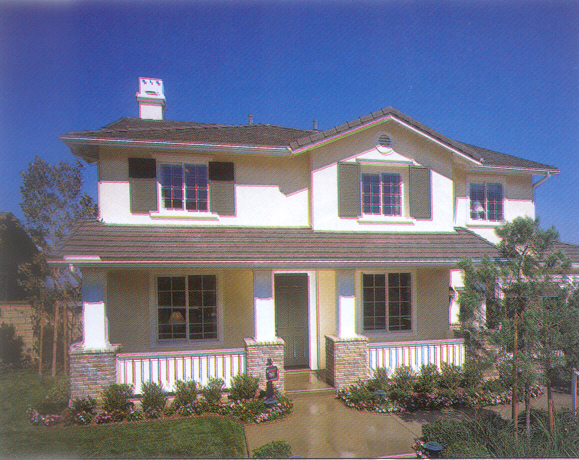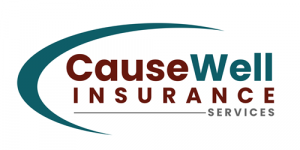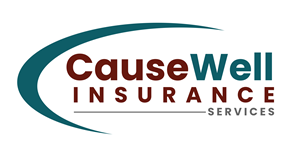When your home is damaged or destroyed, you want an insurance company that will respond quickly with calm efficiency. CauseWell Insurance Services can help you find the home insurance that will give you the peace of mind to know you are covered when disaster strikes.

Whether you’re a first-time homeowner or about to retire to your dream home, the right home insurance policy can provide you the money you need to repair or replace your home, belongings, or both in the event of a fire, flood, or other covered events.
The Right Choice for Your Home
Homeowner insurance policies differ by the type of residence, value of your belongings, and the level of coverage you choose. You can select different types of insurance based on your personal housing situation and the assets you want to protect. These options include:
- Property or Dwelling Coverage pays to repair or rebuild your home if it’s damaged or destroyed by an insured event like a hurricane or fire.
- Personal Property Insurance replaces your belongings that were lost, stolen, or destroyed as a result of a covered loss.
- Additional Living Expenses cover additional living expenses if you can’t live in your home while it is being assessed and repaired from a covered loss.
Additional coverages that may also be available:
- Personal Liability Coverage – if someone is injured or your property
- Medical Coverage – for guests that are accidentally injured on your property
- Scheduled Personal Property Coverage – for unique valuables that need separate coverage to ensure their full value is covered
- Landlord Protection – for additional risks posed by tenant-occupied dwellings
- Umbrella Insurance – for extended coverage when your other insurance liability has been exhausted
Get in touch to find out how to get the best price and value on home insurance for you.
If you want more detailed information on homeowners insurance in general, keep reading below:
What to Look for in a Homeowner’s Insurance Policy
I suppose this sounds cliché, but your home is generally the most significant investment of your life. Considering the importance of shelter and the amount of work that goes into purchasing and maintaining your home, you have to protect it. If you financed it (and who hasn’t), you don’t have a choice. A lender will not let you get away with leaving your home at risk for fire, wind damage, or whatever. Homeowner’s insurance is much more specific than people realize. Even though there are differences between companies, there are common standards of coverage between almost all insurers. These include:
- Your Dwelling
- Other Structures on your Property
- Personal Property
There is usually a deductible for your dwelling and personal property. Deductibles can vary from as low as $250 to as much as $5000, depending on how much you want to pay and how much you want to risk. More standard coverages include:
- Loss of Use Costs
- Personal Liability
- Medical Payments to Others
Other things commonly covered in homeowners insurance (up to certain amounts):
- Personal property away from residence premises
- Securities, deeds, and evidence of debt
- Watercraft, including trailers
- Trailers, not used with watercraft
- Jewelry, watches, semi-precious stones, fur
- Firearms
- Silverware or other flatware
- Business property on-premises
- Business property away from the premise
- Electronic data processing equipment
- Money, scrips, bank card, bullion, etc.
The coverage for each of these assets can vary from policy to policy. If you have these kinds of assets, it can be worth it to compare. One of our carriers really stands out here. Call or write to us if you want to learn more about them.
Typical Exclusions
– Sudden Escape of Water or Steam – Most insurance companies will cover sudden and accidental direct physical loss to personal property caused by water or steam that escapes from a plumbing, heating, or air conditioning system, an automatic fire protection system, or from a household appliance due to accidental discharges or overflows. However, they most often do not cover loss to the system or appliance from which the water or steam escaped, or loss from water that backs up through sewers or drains or overflows from a sump pump well or other system designed for the removal of subsurface water which is drained from a foundation area of a structure. In addition, they most often don’t cover slow leaks that occur over time and damage due to floods or sewer backups. These kinds of risks usually need to have a separate “flood” policy. Flood policies are available in most states.
– Mold and remediation for mold – These are other areas where home insurance companies usually have limits. Ask your Agent or look for it on your policy. Limits range from $2500 to $10000, sometimes more.
The following parts of your property are often not covered or covered only under specific circumstances outlined in your policy. You have the right to ask your Insurance Agent about each of these. They should be able to provide that information to you. Of course, most people don’t ask and just assume that everything is covered. Insurance policies are simply contracts, and everything is usually in writing. You can’t usually change them, but you can at least ask and compare. Insurance companies treat these things differently.
– Damage to the Foundation or Slab – Most often not covered unless the damage directly results from something named in the policy.
– Falling Objects – Usually only covered if something hits the outside of your home first.
– The Collapse of the Dwelling – Generally covered if it is sudden or is the result of something named in the policy (a Named Peril)
– Landslide and Earth Movement – Not usually covered, but “Endorsements” are available that amend a policy to cover this.
– Debris Removal – Usually, reasonable costs of debris removal are covered.
– Trees, Shrubs, & Plants – Most companies will pay for these up to a limit. Not usually more than $500. You can ask for additional coverage if you own valuable trees and plants.
Other Homeowners Provisions to Consider:
Building Code Upgrades – Sometimes you need a repair, and you find yourself having to pay for some kind of new building code cost. This provision can pay for those additional costs.
– Identity Theft – This is a new situation often included, but usually for an extra fee. You may be able to save a few dollars by removing this if some other type of protection covers you. Generally, if you are not covered elsewhere, keeping it within your homeowner’s policy can be reasonable.
– Extended Replacement Cost – This is a protection for inflation and can give you between 10% to 50% more to rebuild or replace your property in the event of a claim.
How Much Do You Get if You File a Claim?
This is an important question and should probably be closer to the top of this list. Insurance companies use either “Replacement Cost” or “Actual Cash Value” as the methods to repair or replace your property.
– Actual Cash Value (ACV) – This is where the policy pays for the cost to repair or replace at the time of loss minus depreciation.
– Replacement Cost – This is where the policy pays the total cost to replace or repair your damaged property at the time of the loss. This method does not adjust for depreciation, so it is a more desirable method. But you don’t usually get this unless you are insured for at least 80% of what your property is worth. In other words, you can’t buy insurance in an amount that is half what your property is worth and expect an insurance company to pay replacement cost (full value) in the event of a claim. That wouldn’t be fair and is a reasonable requirement that insurance companies ask if they offer Replacement Cost as their claim’s payment method.
If you want to be a thorough and educated insurance buyer, you have every right to ask about each of these bullet points. That is way better than being surprised and upset at the time of a claim.
Remember that CauseWell is your advocate. We’re happy no matter who you choose and our job is to help you find the best homeowners policy available.

